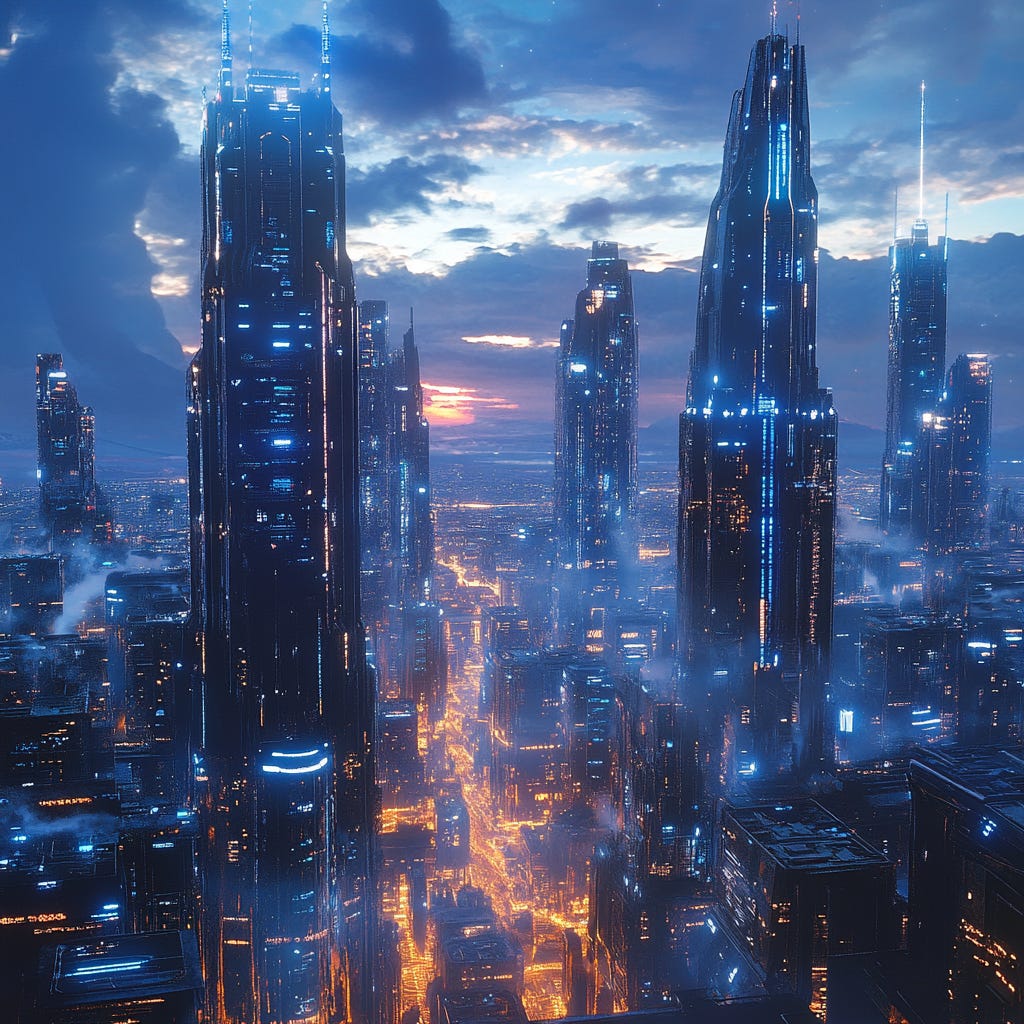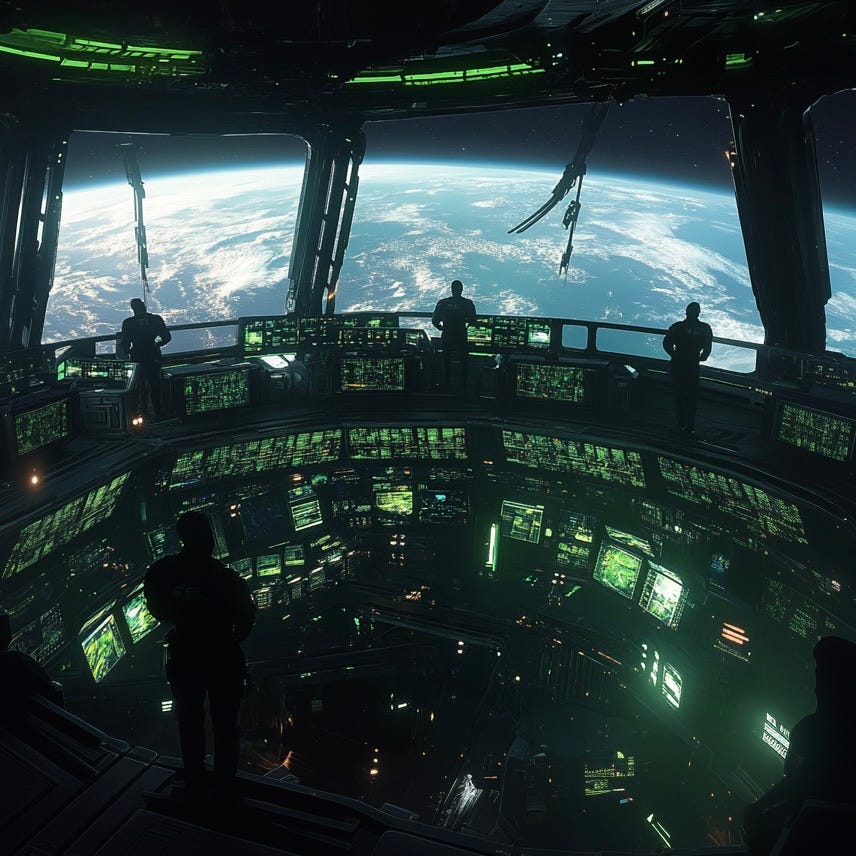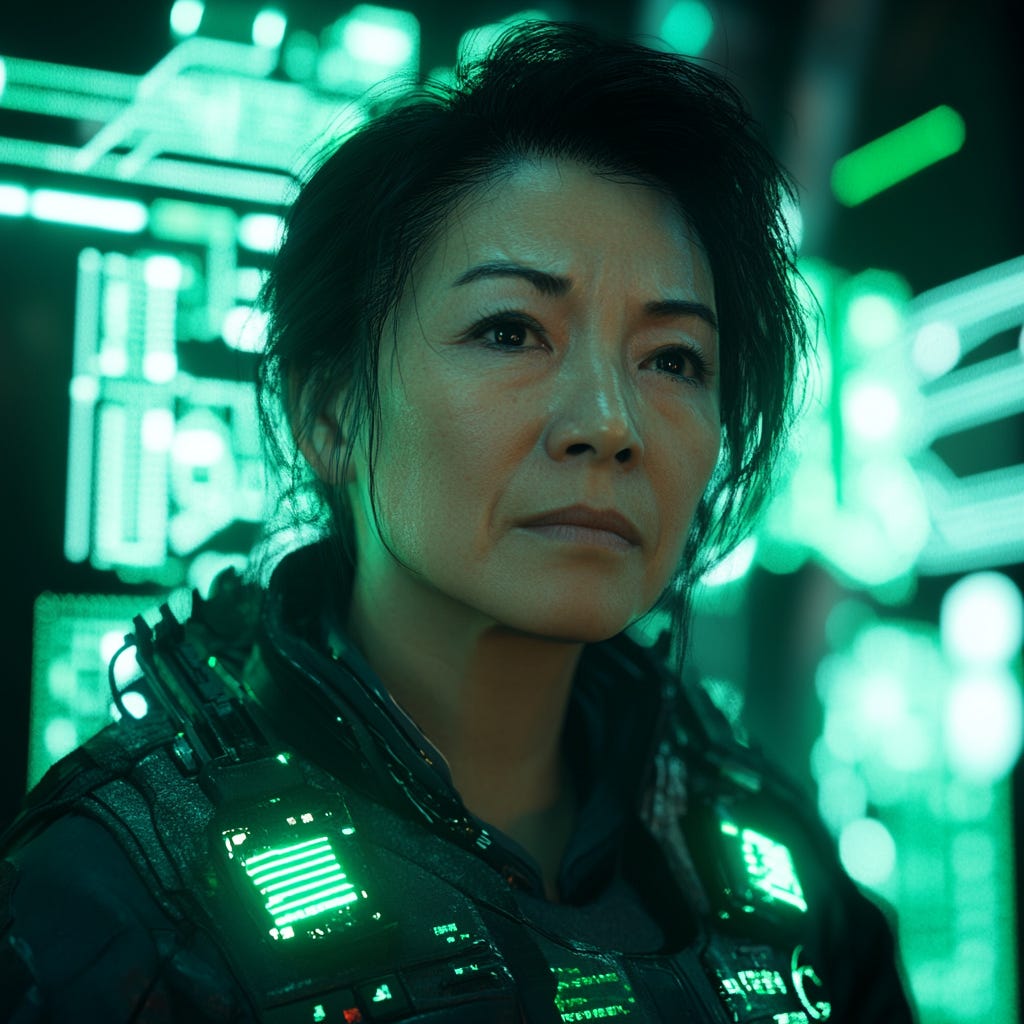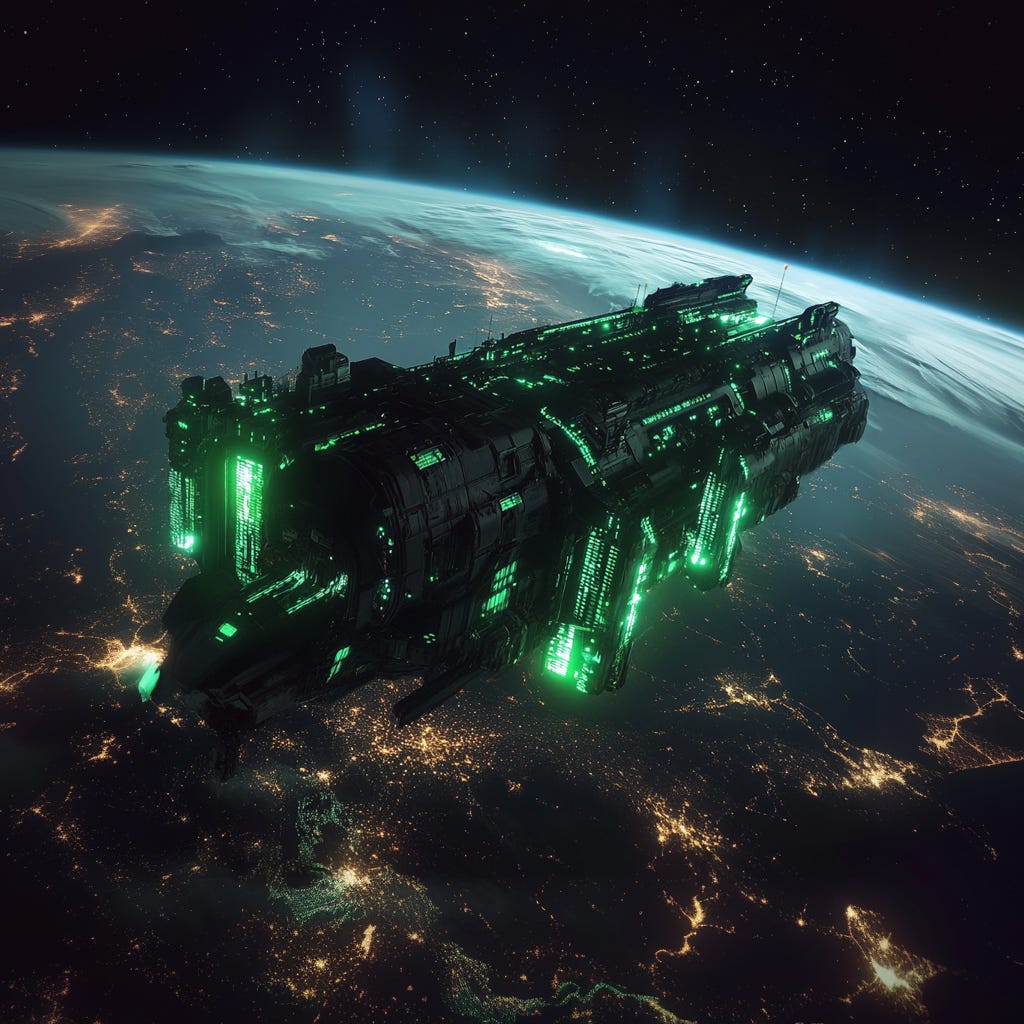The possibility of understanding assumes that in us, the observers, can be found the same ethical and intellectual categories that are expressed in those we are trying to understand.
Johann Gustav Droysen, Outline of the Principles of History (Boston, 1893)
The Infestation
The junior officers on the bridge tried to conceal their agitation by focusing on their consoles. The section chiefs called out their respective updates. Earth’s Unified Global Network (UGN) had been hijacked. Now the parasites were making inroads into the starship’s systems.
Captain Deverell stood at the helm, which overlooked the bridge’s triple-decked rotunda. “My friends, we will get only one chance at this.”
Science Officer Yue’s fingers danced over the controls as she spoke. “Captain, do you not find the moral and ethical implications of the proposed solution troubling? The eradication of a species is no small matter.”
Lt. Price turned in his chair to confront her. “That species is only minutes away from eradicating us!”
“I am aware of that, Lt. Price. But your plan has not been tested—at least on so grand a scale. We run the risk of annihilating not only the enemy but ourselves.”
The engineer banged his fist on the armrest. “Your behavior is treasonous!—Captain, Yue has always been an apologist for them!”
“May I speak?” Deverell asked in an ironic tone. The engineer glowered. “Commander Yue, I’m afraid I share Lt. Price’s concerns. Viruses and diseases, even when they have been contained, have a nasty habit of—”
“Captain!” Yue snapped, clenching her fists. “These are not viruses or diseases. They are living creatures—as sentient as you or I.”
“The only reason I drew the parallel, Commander Yue, was to underscore we have been at this crossroads before. A thousand years ago we could have eradicated them. And what happened? Cooler heads prevailed, as the ancient saying goes. We spared a colony and settled it on the archipelago of Socotra. The archipelago was to be their prison and preserve. And it was to be our zoo and laboratory, so that we could study them.
“But within a hundred years’ time, that solution no longer held up to public scrutiny. The archipelago was deemed too small to contain the colony. Our treatment of the creatures was considered barbaric and retrograde. So we released them—not into the wild, but into civilization. We integrated them into our society. We tried to befriend them, to educate them. . .”
The overhead lights dimmed momentarily.
Deverell gestured to the banks of flickering screens. “Perhaps we taught them too much.”
“Captain!” The engineer exclaimed. “There’s no time for a philosophical debate!”
“Agreed,” Deverell nodded and touched his brow. “Lt. Price, I order you to execute the plan. . . And may God have mercy on our souls.”
From his console, the engineer initiated a set of commands that caused thousands of satellites orbiting the planet to emit an electromagnetic resonance field that formed an invisible web around the globe. The web contracted until every portion of Earth had been penetrated—from its upper atmosphere to its core.
A holographic sphere depicting Earth’s surface rotated in the middle of the room. Red pinpoints of light merged to form glowing swaths that marked death’s progress, as the lurid patches coalesced and grew.
The bridge went silent for several minutes. Suddenly, an automated voice announced through the intercom that the UGN had been restored.
From the convex windows that gave onto the planet’s eastern hemisphere, the crew watched as the power grids servicing the interconnected metropolises that covered Earth’s continents (like iron plates) winked on in a piecemeal fashion.
Captain Deverell folded his arms across his chest. “Commander Yue, report.”
Tears welled in Yue’s eyes as she scanned the monitors. “The operation has been a success. Our android brethren have suffered minimal casualties. The infestation has been eradicated. The human race is no more.”
This story was inspired by two old Twilight Zone episodes: “A Small Talent for War” and “To Serve Man”.






I love your twists, Daniel!
Ooh, nicely done. I love the dark irony of “Perhaps we taught them too much.”